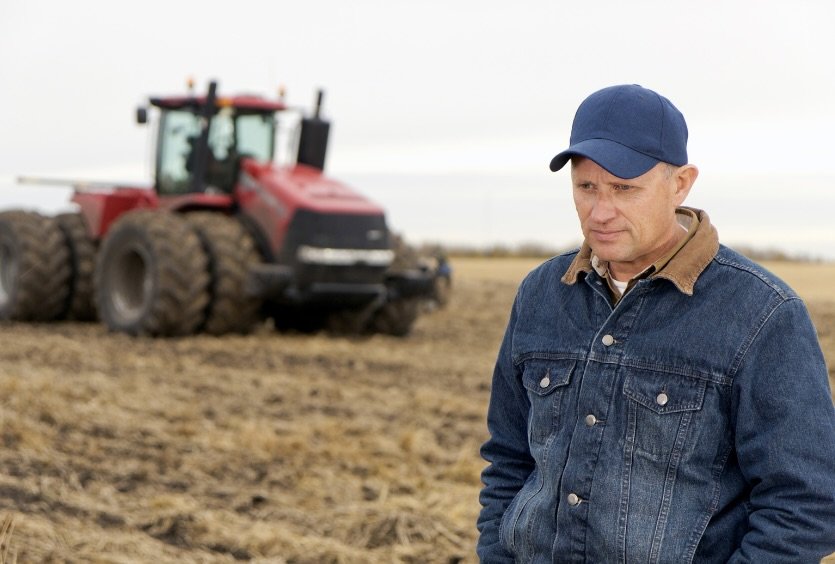What If You Woke Up One Day Questioning a Big Decision?
What do you feel? Image: Ivan Aleksic, Unsplash A white woman sits in a well-appointed room covering her face with both hands.
What if you woke up one day questioning a big decision? Maybe the partner you loved so much turned out to be toxic; or the inspiring religious group you joined has crossed a line; or the investment you put your trust in is looking like a scam.
What do you feel?
And now you wake up in a situation you no longer trust. All the love, inspiration, and resources you invested are gone. What do you feel? Shame, embarrassment? Confusion, fear, self-doubt? Sadness and overwhelm? Maybe you’re facing the loss of your home or your new community — or perhaps the loss of your old friends or family who had warned you or told you of their uneasy feelings before you committed. How do you start over? Who do you turn to?
You face a loss of familiar, supportive community. . .
Image: Prostock-studio
If you admit this on social media, what are you met with?
Is it a sea of glee at the losses you’re coping with? Wagging fingers of “I told you so” and “Karma’s a Bitch” placards? Is it your fault that you were duped into this decision, and if so, how long must you wear that scarlet letter? Is anyone showing you a positive way forward?
Alternately, what if you were the friend who had seen this coming and tried to talk some sense into them? How would you respond when they turned to you, slinking home, tail between legs? Would you leave an encouraging comment? Give them a call? Would you help them offload the shame and embarrassment over a shared meal? Or would you make them eat crow, isolated now on all sides?
. . . May feel self-doubt, embarrassment or shame. . .
Image: PP
In this situation, most of us want to be welcoming. We feel the relief of our loved one “coming home.” We sense what they have been through. The time will come for us to help them make a better plan or set better boundaries or understand how hurtful their decisions were. But right now the job is to show them that they belong, that their trust is safe with us.
Getting Real
Now imagine once again that you are the one awakening to the consequences of your decision. And that decision was your vote last November. You may feel all those same emotions - loss of trust, inspiration and emotional investment. You face the loss of a familiar and supportive community. You may doubt yourself or feel embarrassment and shame. You may have lost a job, a relative, or a means of support; or maybe your budget is simply not working now and you’re having to contemplate big changes to your life and livelihood. The stores you depended on may be starting to close down. The exemptions you thought you had for being an upstanding business owner, worker, parent or retiree have vanished.
And you already know what awaits you on social media. More smug memes, more gloating, more assumptions of how stupid or selfish or bigoted you were.
Schadenfreude, Joie Maligne & Their Relatives
I am seeing a lot of schadenfreude online these days: Gleeful posts showing people being deported, still in their MAGA shirts. Folks who didn’t realize their brother in law’s job at a nearby national park would be cut. Rural towns begging their senators to protect their long-planned green infrastructure project. People with empty retirement accounts, gearing up to work as many more years as they can. I get it. As my dad used to say, “Time wounds all heels.”
And, from where I sit, much of this was predictable — so it’s hard to bear in mind that not everybody sits where I do, and doesn't share my viewpoint. They may not have had the information I did; or they may have voted entirely out of frustration; or they may have voted against a manufactured bogeyman like “DEI” when their underlying values in fact embrace fairness and hospitality. Maybe they knew exactly what they were voting for, or maybe not. In the words of Loretta Ross, describing that person who disrupts a workshop Q & A session, “Maybe he’s an a**hole, maybe it’s something else.” The point is, nobody can tell at first glance.
. . . May have lost a job, a relative, or means of support. . .
Image: Getty Images Signature
I’ll grant that schadenfreude is a part of being human. This feeling is expressed in many cultures and languages besides the German from which we take it: Hebrew, Russian, Mandarin and New Guinean to name a few. The French expression translates to “malignant joy,” and the Japanese to “The misfortune of others tastes like honey." Savoring this sweet taste is clearly a natural human feeling. Dishing this kind of dirt is also a way we have maintained our norms of acceptable behavior.
“Displaying our glee publicly isn't in anybody's best interest. The affirmations we get from it can fan its flames. Plus, it's akin to a callout that isn't strategic.”
So, though it’s nothing to be proud of, if you’re feeling it there’s no use pretending you don’t. You need to acknowledge it and get it out of your system, so go ahead and do whatever you need to do, privately. (If you’re not sure how, try using a Stuck exercise). Displaying our glee publicly isn’t in anybody's best interest. The affirmations we get from it can fan its flames. Plus, it’s akin to a callout that isn’t strategic. Consider how it feels when someone uses that “I told you so” tone with you. Does it change your mind and make you want to join a conversation? Or back you into a defensive corner you can’t wait to escape from?
. . . Maybe your budget is simply not working now. . .
Imate: Getty Images Signature
If we ever want to get out of our cycle of contempt, we need to flip my dad’s saying back to the original, “Time heals all wounds.” We need sufficient time to spend on welcome, support, and re-establishing relationships, without flaunting our malignant joy. We also need to allow some space without prying into the why. Again, in Loretta Ross’ words, “No one can change without room to grow.”
Once we put away schadenfreude and signal that we’re not inviting people into a shamefest, there can be time to listen to what happened in their lives that pushed or pulled them into that decision that they now regret. And time to help them fully understand the extent of the harm done, and the ways they have been manipulated. But not now.
“We need them now as much as they need us — neither side can find a way out of our polarized mess on its own.”
Right now, many people are awakening to the folly of their vote last fall. We can’t afford to humiliate them just as they are looking for a way to reconnect. We need them now as much as they need us — neither side can find a way out of our polarized mess on its own. Now is the time for respect, from the Latin roots meaning “to look at again.” Re-spect means looking again with appreciative inquiry, looking for the basic humanity of another, looking for their own longing to be whole, and to be part of a whole that can also include us. As Aretha Franklin immortalized it, “All I’m asking is for a little respect.” It’s all any of us ask, and something each of us can give.
We Can Enact our Aspirations
This definition of respect may seem aspirational. But, most of us can get to it with some training. The ideas of Calling In provide a roadmap for enacting it. And the practices of Social Presencing Theater bring techniques to fully embody it by getting us past our initial gloating and glee, as well as any underlying hurt and anger. My Communication that Opens Doors: Building your Calling In Capacity to Reclaim Relationships course combines these to offer structure, guidance and community. A new cohort starts April 26.
For groups wanting an introduction to the idea of Calling In, I offer a custom Not Afraid to Say “Ouch!” — How to Contest the Status Quo by Calling In, Out, On or Off workshop. And for organizations that want to get out of cycles of outrage, impasse and mediation, my Build & Lead your Internal Call-in Culture workshop helps leaders develop and implement systems for increasing understanding and navigating conflict.
If you're not sure where to start, contact me - I'd be glad to talk.





